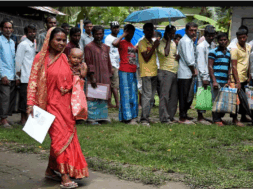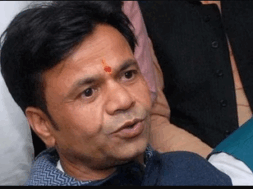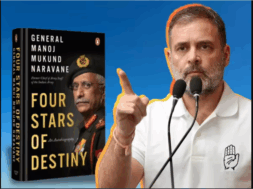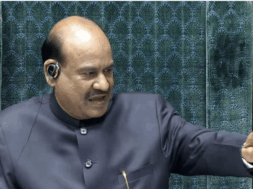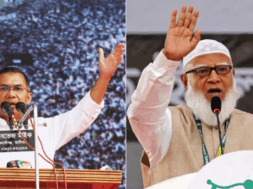
ECI Ready to Make Electoral Data Available for Vaccination Drive
Manas Dasgupta
NEW DELHI, Jan 15: The Election Commission of India is learnt to have agreed to provide the electoral list to the government to help in the mass immunization programme scheduled to begin from Saturday with the green signal to be given by the prime minister Narendra Modi.
The ECI sources said the decision to provide the electoral roll data to the government to identify the age group was taken on a request it received from the union home ministry considering that the immunization programme would be as gigantic a task as holding the general elections or more. The government is learnt to have sought the electoral data particularly to identify people above the age group of 50 who will be covered under the first phase of inoculation programme soon after the three core odd front line workers receive the vaccines.
One of the options being considered by the ECI was to prepare booth-wise list of the voters above the age of 50 and send the details to the respective states instead of handing over all the data to one agency for bifurcations which carried more risks of being leaked to wrong sources. The ECI is also understood to have told the government that it should delete all the data shared by the EC once the exercise was completed. Final decision would be taken after the commission received from the government about the specific data required by it, the sources said.
According to the Government’s blueprint, the vaccine will be offered first to healthcare workers, frontline workers and those above 50 years of age, followed by those below 50 with associated comorbidities. The priority group of above 50 may be further divided into those above 60 and those between 50 and 60 for a phased rollout.
According to sources, the EC’s electoral roll data has been sought to identify people above the age of 50 in each polling station. The sources said the health ministry wanted to understand the structure of the election machinery and how polls are conducted at the grassroots level. This was done since the vaccination drive will be similar to the election process given the similarities in the scale of the two operations. Under the National Disaster management Act, the union home ministry was the nodal agency for co-ordinating with all state governments to ensure uniform approach in containing the pandemic.
Last month the Chief Election Commissioner Sunil Arora had revealed that the ECI was open to offering assistance in the vaccination programme to identify the beneficiaries if desired by the government.
“Currently, we do not have any legal authority (to assist in the administration of the vaccine). To conduct elections, we are empowered under Article 324. But having said that, given the experience and expertise we have, if someone reaches out to us for a national cause, we will take a call,” he had said.
Arrangements had already been finalized and adequate doses of Covishield manufactured by the Serum Institute of India and Covaxin developed by Bharat Biotech have reached the identified destinations to launch the drive at 3,006 sessions sites across the country on Saturday. Each site would administer vaccines to 100 beneficiaries a day. At least 60 hospitals across the country, including the All India Institute of Medical Sciences (AIIMS), Delhi, have been directed to prepare for video conferencing facility to enable the prime minister to interact with some of the beneficiaries receiving the shots on the first day.
“This vaccination programme is based on the principles of priority groups to be vaccinated and Health Care workers, both in government and private sectors including ICDS (Integrated Child Development Services) workers, will receive the vaccine during this phase,” a statement from the Prime Minister’s Office (PMO) said.
India on Friday recorded 15,590 new Covid-19 cases taking the total tally to over 1.05 crore. Active cases further dropped to 2.13 lakh, while recoveries went up to over 1.01 crore. With 191 fatalities reported on Friday, the death toll stood at over 1.57 lakh. With a total of 8.31 lakh cases recorded so far, Kerala has now overtaken Tamil Nadu’s case count, and now has fourth highest caseload in the country, after Maharashtra, Karnataka and Andhra Pradesh.
The Centre has decided that the state-wise distribution of vaccine would be based on the areas with higher infection rate. This means, states like Maharashtra and Kerala, which are reporting the highest daily cases, are likely to get more vaccines as compared to other states. States, in turn, will decide how to distribute the shot at a district level. The distribution at a district level has to be in proportionate to ensure each beneficiary can be administered two doses of the same vaccine.
The government, however, has clarified that the people with history of allergic to any kind of vaccines and pregnant and lactating women for the time being would not receive the vaccine as a safety measure.
As people are vaccinated, their data will be uploaded in real-time on the Co-Win platform. The government plans to use Aadhar number for identifying and monitoring beneficiaries.
Once vaccinated, the beneficiary will receive a digital certificate. This will help remind him/her when the second dose is to be administered. It will help the government know who has received the dose. After the second dose, a final digital certificate will be generated.
The data on the Co-Win platform will also help in curbing rumours and misinformation about the vaccine and ensuring effective reporting of adverse events, if any, after vaccination, official sources said.
The government has also created a dedicated 24X7 helpline number — 1075 — to address queries related to the vaccine rollout and the Co-WIN software.

